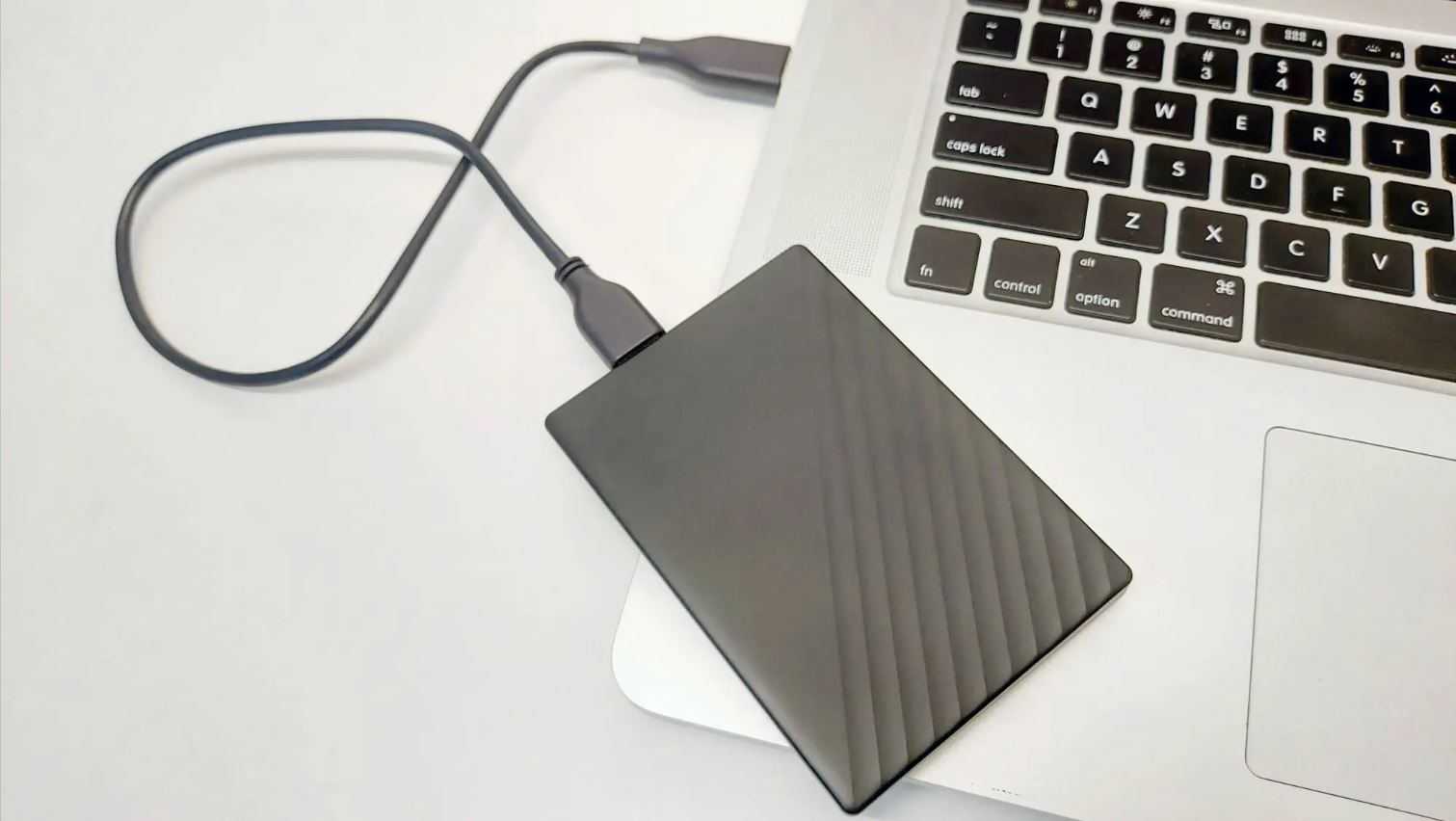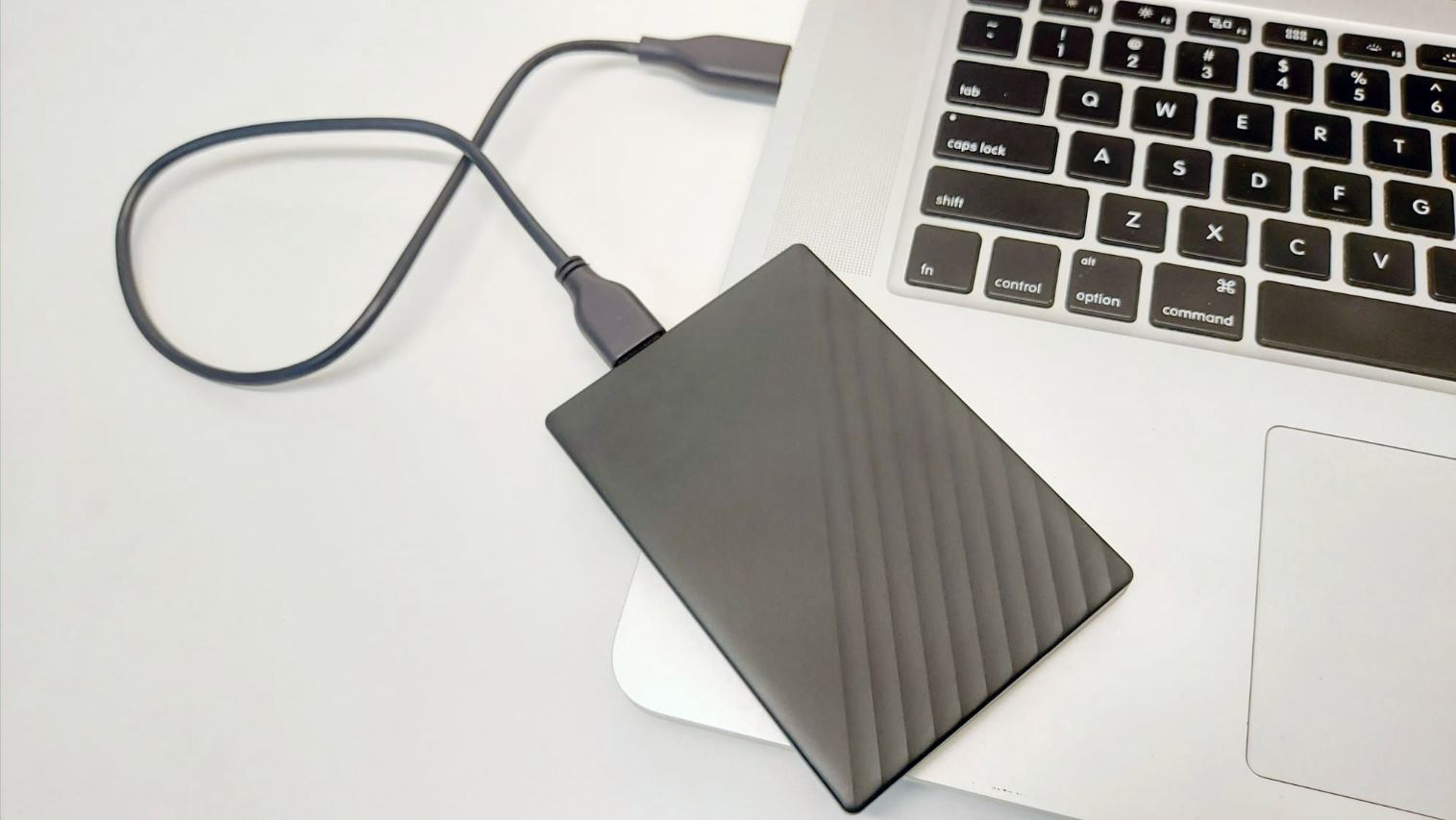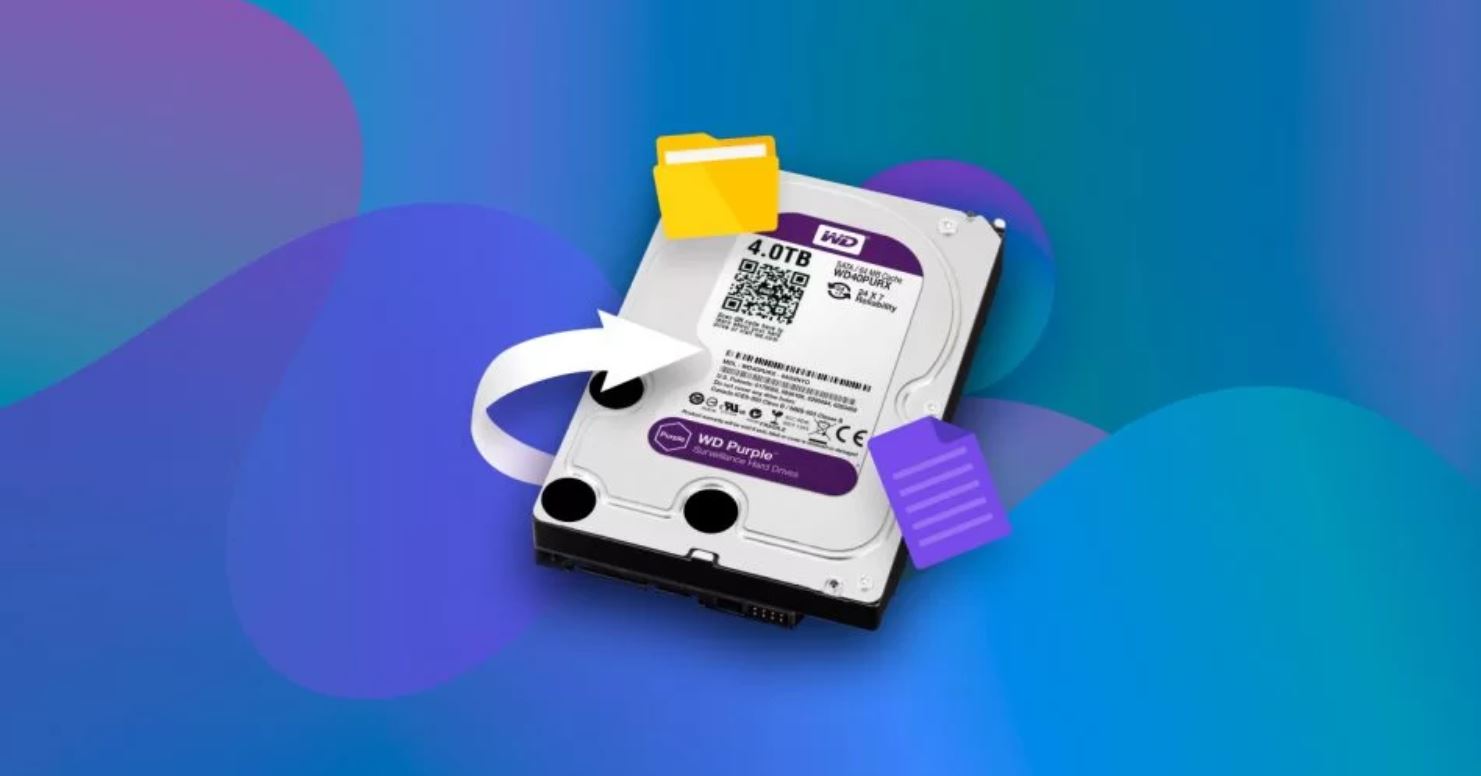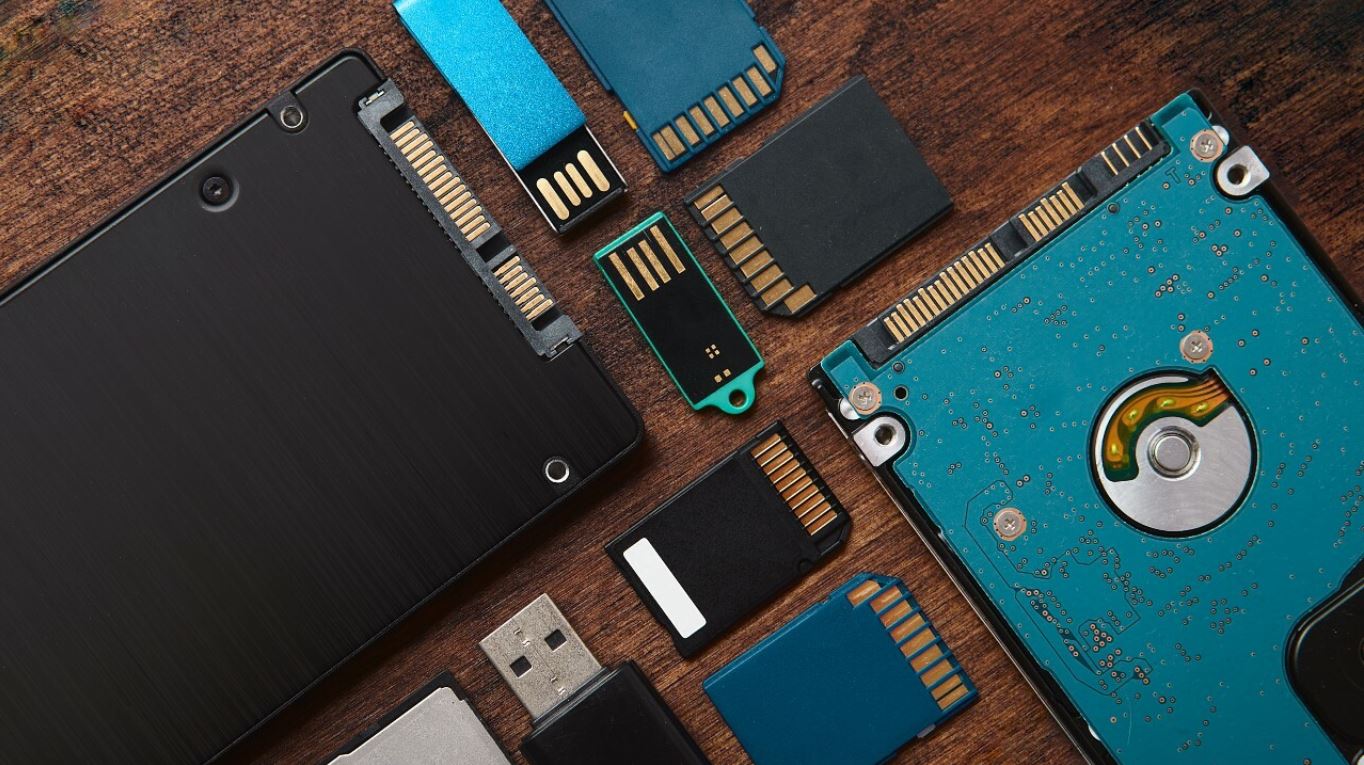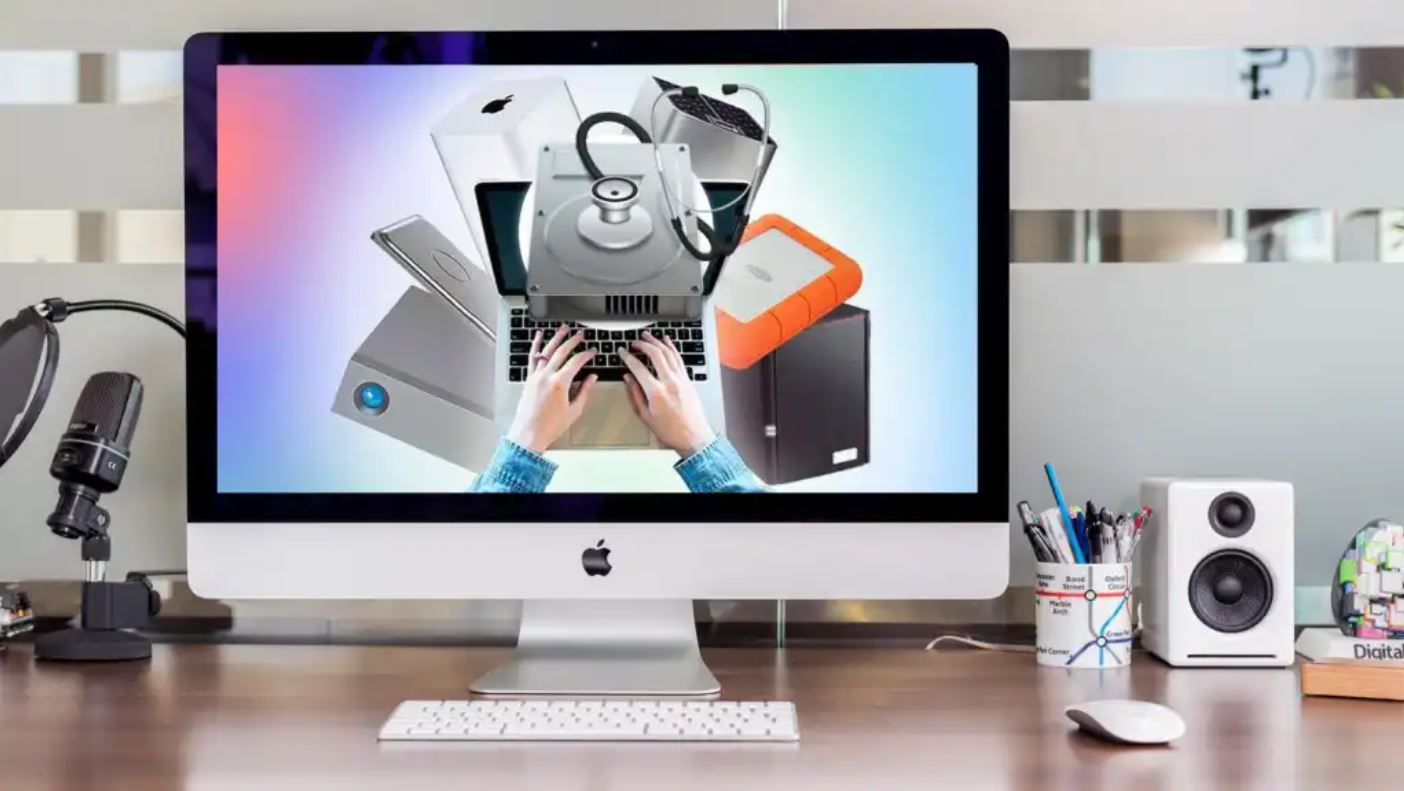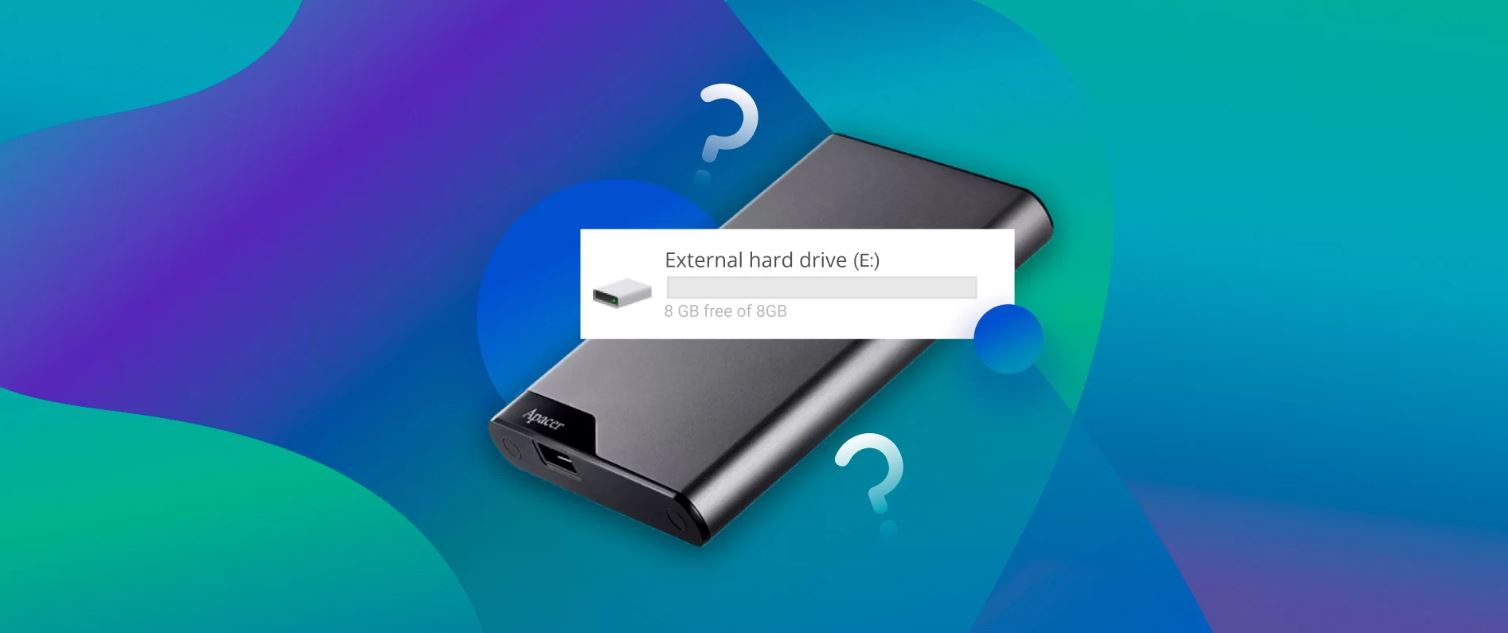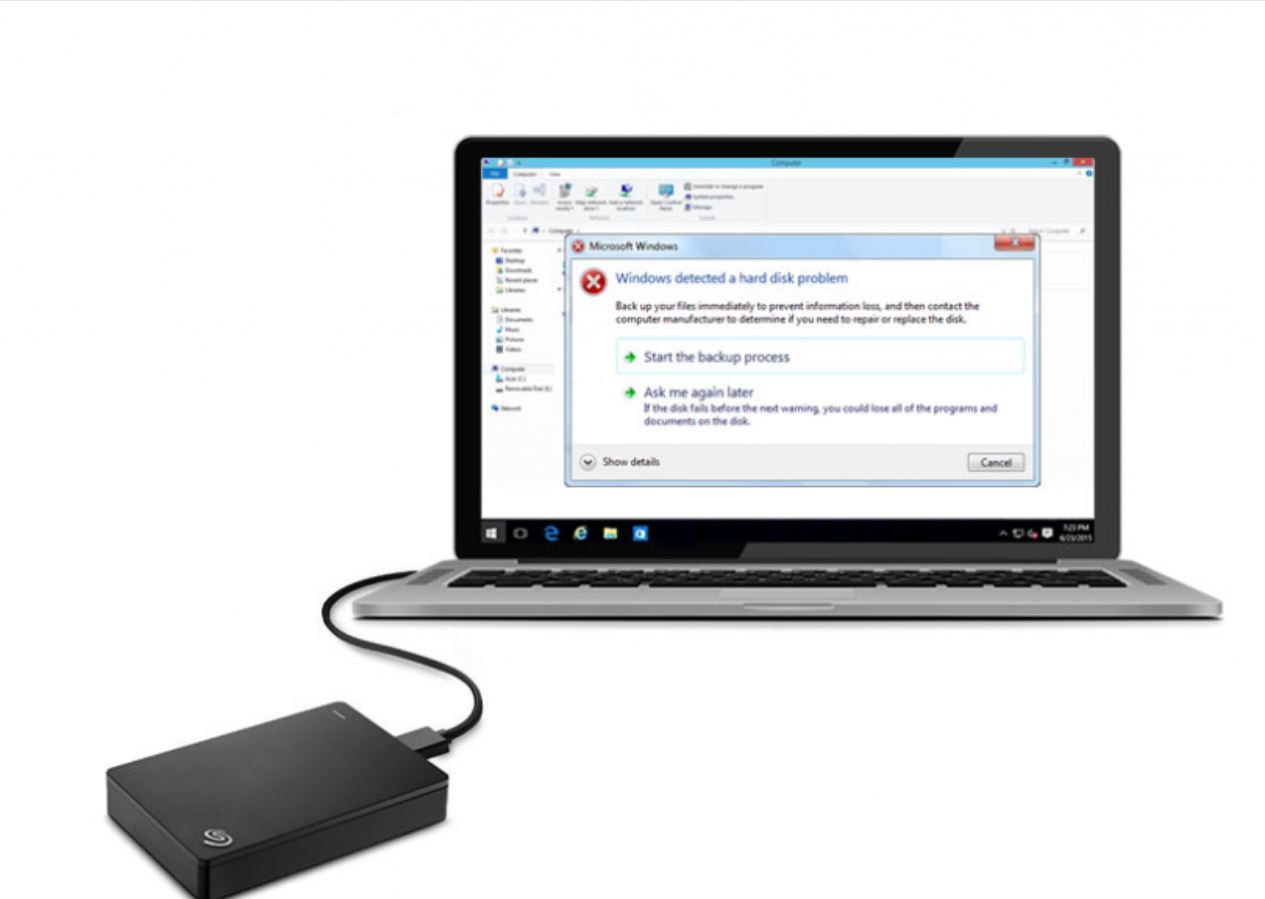Common Causes of External Hard Drive Disconnections
External hard drives are convenient storage devices that allow us to store and transport large amounts of data. However, it can be frustrating when your external hard drive keeps disconnecting. Several factors can contribute to this issue, and understanding the common causes can help you troubleshoot and fix the problem.
One of the most common causes of external hard drive disconnections is a faulty USB cable. Over time, cables can become worn or damaged, leading to intermittent connectivity issues. Inspect the cable for any visible damage and consider trying a different cable to see if the problem persists.
Power supply issues can also contribute to external hard drive disconnections. If the power supply to the drive is unstable or insufficient, it can cause the drive to disconnect abruptly. Make sure you are using the correct power adapter for your external hard drive and check if the power source is delivering consistent power.
Poor power management settings on your computer can also lead to issues with external hard drive connections. Some computers may be set to conserve power by selectively turning off USB ports, which can result in frequent disconnections. Adjusting the power settings to ensure that the USB ports remain active can help resolve this issue.
Driver compatibility problems can also cause external hard drives to disconnect. Outdated or incompatible drivers can lead to conflicts that result in sporadic disconnections. Update the drivers for your external hard drive and ensure they are compatible with your operating system.
A faulty USB port on your computer can also be the culprit behind the external hard drive disconnections. Try connecting your external hard drive to a different USB port to see if the issue persists. If it does not, then the original USB port may need to be repaired or replaced.
Overheating can also contribute to external hard drive disconnections. Extended use or poor ventilation can cause the drive to heat up, leading to instability and disconnections. Ensure that your external hard drive is properly ventilated and consider using cooling pads or fans to prevent overheating.
A virus or malware infection on your computer can also cause issues with external hard drive connections. Run a thorough scan with an antivirus program to remove any malicious software that may be interfering with the drive’s functionality.
Insufficient power output from your computer’s USB ports can also lead to external hard drive disconnections. Some devices, particularly older computers, may not provide enough power to sustain the external hard drive’s operation. Consider using a powered USB hub or connecting the drive to a different computer with adequate power output.
Inadequate power supply to the external hard drive itself can also cause disconnections. If the power supply is faulty or inadequate for the drive’s requirements, it can lead to intermittent disconnections. Check the power supply and consider using a different power adapter if necessary.
By understanding these common causes of external hard drive disconnections, you can take the necessary steps to troubleshoot and resolve the issue. Whether it’s replacing a faulty cable, updating drivers, adjusting power settings, or ensuring adequate power supply, addressing these factors will help ensure a stable and reliable connection to your external hard drive.
Faulty USB Cable
A faulty USB cable is one of the most common causes of external hard drive disconnections. Over time, cables can become worn, frayed, or damaged, leading to intermittent connectivity issues.
To determine if a faulty USB cable is the culprit behind your external hard drive disconnections, start by inspecting the cable for any visible signs of damage. Look for worn-out or frayed areas, bent or broken connectors, or loose connections. If you notice any of these issues, it’s likely that the cable is causing the problem.
If you suspect a faulty USB cable, the first step is to replace it with a new one. Make sure to select a cable that is compatible with your external hard drive and has the necessary USB version (e.g., USB 2.0 or USB 3.0) for optimal performance.
Once you have a new cable, connect it securely to both your external hard drive and the USB port on your computer. Avoid bending or twisting the cable excessively during the connection process to prevent any future damage.
If replacing the USB cable doesn’t resolve the issue, try connecting the external hard drive to a different USB port on your computer. Sometimes, specific USB ports may be experiencing connectivity problems, while others work without any issues.
If the external hard drive works properly when connected to a different USB port, it’s likely that the original USB port on your computer is faulty. In such cases, you can consider getting the faulty USB port repaired or use the alternative USB port for continued usage of the external hard drive.
It’s important to note that using a USB cable that is too long or of low quality can also lead to disconnections. Ideally, the cable length should be within the recommended specifications for your external hard drive. Furthermore, ensure that the cable is of high quality to minimize the risk of future connectivity problems.
In summary, a faulty USB cable can cause frequent disconnections with your external hard drive. By inspecting the cable for damage, replacing it if necessary, and connecting the drive to a different USB port, you can troubleshoot and potentially resolve the issue.
Power Supply Issues
Power supply issues can be another common cause of external hard drive disconnections. If the power supply to the drive is unstable or insufficient, it can lead to intermittent connectivity problems.
The first step in troubleshooting power supply issues is to verify that you are using the correct power adapter for your external hard drive. Using an incompatible or lower-powered adapter can result in insufficient power reaching the drive, causing it to disconnect.
Check the power adapter’s specifications and compare them to the recommended power requirements of your external hard drive. Ensure that the voltage and amperage match to ensure a proper power supply.
In some cases, the power source itself may be the issue. Connect the external hard drive to a different power outlet or try using a surge protector to eliminate the possibility of power fluctuations or electrical interference.
If the power supply issues persist, it could be a sign of a faulty power adapter or cable. Inspect the power adapter and cable for any visible damage, such as frayed wires or loose connections. If you notice any issues, replace the power adapter or cable with a new one that is compatible with your external hard drive.
It’s also worth considering whether other devices connected to the same power source are drawing excessive power. If multiple devices are connected to the same power strip or outlet, disconnect unnecessary devices to ensure adequate power is available for the external hard drive.
Another factor to consider is whether any power-saving settings on your computer are affecting the external hard drive’s connection. Computers can have power management settings that selectively turn off USB ports to conserve power. Adjusting these settings to ensure that the USB ports remain active can help prevent disconnections.
If all else fails, consider using a powered USB hub to connect your external hard drive. A powered USB hub provides its own power supply, ensuring a stable and consistent power source for the hard drive, even if the computer’s USB ports have power supply limitations.
In summary, power supply issues can lead to external hard drive disconnections. By ensuring you are using the correct power adapter, checking for damage in the power adapter or cable, eliminating power fluctuations, adjusting power management settings, and considering a powered USB hub, you can troubleshoot and resolve power-related issues with your external hard drive.
Poor Power Management Settings
Poor power management settings on your computer can contribute to external hard drive disconnections. Some computers are configured to conserve power by selectively turning off USB ports, which can lead to intermittent connectivity problems.
To address this issue, you need to adjust the power management settings on your computer to ensure that the USB ports remain active. The process for changing these settings may vary depending on your operating system, but the general steps are as follows:
- Open the Control Panel or System Preferences on your computer.
- Locate and select the “Power Options” or “Power & Sleep” settings.
- Look for any options related to USB power management or selective USB port shutdown and adjust them accordingly.
- Ensure that the settings allow the USB ports to stay powered on even during periods of inactivity or when the computer is in sleep mode.
If your computer has advanced power management features, you may need to navigate through additional menus or refer to the manufacturer’s documentation for specific instructions.
After making the necessary changes, restart your computer and reconnect the external hard drive. Check if the disconnection issues persist. By preventing the USB ports from being powered off, you improve the chances of maintaining a stable connection with your external hard drive.
It’s also recommended to update your computer’s operating system to the latest version. Sometimes, software updates include fixes for power management issues, and installing these updates can help resolve any compatibility problems that may be causing disconnections.
Keep in mind that power management settings can vary between laptops and desktop computers. Laptops often have additional power-saving features to maximize battery life, which may be more aggressive in turning off USB ports. Make sure to review and adjust these settings accordingly.
Furthermore, if you use a USB hub or docking station to connect your external hard drive, ensure that the power management settings for these devices are also configured correctly. Some hubs or docking stations may have their own power management features, and adjusting them may help prevent disconnections.
Troubleshooting power management settings can be a helpful step in addressing external hard drive disconnections. By ensuring that the USB ports on your computer stay powered on and considering any additional power management settings for your devices, you improve the stability of the connection to your external hard drive.
Driver Compatibility Problems
Driver compatibility problems can contribute to external hard drive disconnections. Outdated or incompatible drivers can lead to conflicts, resulting in sporadic connectivity issues between your external hard drive and your computer.
If you suspect driver compatibility issues, the first step is to ensure that you have the latest drivers installed for your external hard drive. Check the manufacturer’s website for driver updates specific to your model. Download and install the latest drivers following their provided instructions.
Updating the drivers can help address compatibility issues and improve the stability of the connection between your external hard drive and your computer.
In addition to updating the external hard drive’s drivers, it’s essential to ensure that your computer’s USB drivers are up to date as well. USB drivers facilitate communication between your computer’s operating system and connected USB devices, including your external hard drive.
Updating USB drivers can be done through the Device Manager on Windows or the System Information menu on macOS. Locate the USB controllers category and check for any available updates. Install the updates if necessary to ensure that your system has the latest USB drivers.
If updating the drivers doesn’t resolve the issue, you may need to consider driver compatibility problems between the external hard drive and your operating system. Verify that the external hard drive is compatible with your specific operating system version. Some older external hard drives may not be fully compatible with newer operating systems.
If compatibility issues are detected, check the manufacturer’s website or contact their support for any available firmware updates or compatibility patches. Updating the firmware can sometimes resolve compatibility issues and ensure a stable connection between the external hard drive and your computer.
In some cases, installing generic USB drivers instead of the manufacturer’s drivers can help overcome compatibility problems. Generic USB drivers often have better compatibility with a wide range of devices. However, keep in mind that using generic drivers may sacrifice certain features or functionalities that are specific to your external hard drive.
If all else fails, you can try connecting your external hard drive to a different computer with a different operating system. This would help determine if the issue is related to your specific computer’s drivers or if it’s a compatibility problem with the external hard drive itself.
By ensuring that you have the latest drivers installed for your external hard drive and your computer’s USB controller, as well as checking for compatibility issues and considering generic drivers, you can troubleshoot and potentially resolve driver compatibility problems that lead to external hard drive disconnections.
Faulty USB Port
A faulty USB port can be another common cause of external hard drive disconnections. Issues with the USB port on your computer can result in intermittent connectivity problems with your external hard drive.
If you suspect a faulty USB port, start by connecting your external hard drive to a different USB port on your computer. This simple step can help determine whether the issue lies with the original USB port or if it’s a problem specific to the external hard drive.
If the external hard drive works properly when connected to a different USB port, it’s likely that the original USB port on your computer is faulty. In such cases, you can consider getting the faulty USB port repaired or use the alternative USB port for continued usage of the external hard drive.
Inspect the USB port for any physical damage, such as bent or broken pins, debris, or loose connectors. If you notice any visible issues, it’s recommended to consult a professional technician for repairs or replacement.
In some cases, a simple fix can be to clean the USB port using compressed air or a soft brush to remove any dirt or debris that may be affecting the connection. Ensure that the computer is turned off and unplugged before attempting any cleaning to avoid any damage.
It’s important to note that the USB port itself may not be the only culprit. Sometimes, issues with the USB controller or its drivers can also lead to problems with the USB ports. In such cases, updating the USB drivers or even reinstalling them can help resolve the issue.
If you suspect the issue is software-related, you can try resetting the USB ports on your computer. This can be done by following these steps:
- Shut down your computer completely.
- Unplug all USB devices connected to your computer.
- Wait for a few minutes.
- Plug the external hard drive back into the original USB port or a different USB port.
- Turn on your computer and check if the disconnection issues persist.
If the problem with the USB port persists despite these troubleshooting steps, it may be necessary to seek professional assistance or consider using a USB expansion card to provide additional and reliable USB ports for your external hard drive.
In summary, a faulty USB port can cause external hard drive disconnections. By connecting the drive to a different USB port, inspecting the port for damage, cleaning it if necessary, updating USB drivers, resetting the USB ports, and considering alternative solutions, you can troubleshoot and resolve the issue of faulty USB ports causing disconnections.
Overheating
Overheating is another potential cause of external hard drive disconnections. Extended use or poor ventilation can lead to the external hard drive heating up, which can result in instability and disconnections.
When an external hard drive gets too hot, it can trigger built-in safety mechanisms that cause it to disconnect from the computer. This is to prevent damage to the drive and protect your data. Thus, monitoring and addressing overheating issues is crucial.
Ensure that your external hard drive is placed on a smooth and flat surface that allows for proper airflow. Avoid placing it on fabrics or surfaces that can block ventilation and trap heat. Additionally, make sure that there is enough space around the drive for air to circulate freely.
If your external hard drive has a built-in fan, make sure it is functioning properly. Clean the fan regularly to remove any dust or debris that may be blocking airflow. A properly functioning fan helps dissipate heat and keeps the drive within safe operating temperatures.
Consider using a cooling pad or external fan designed for laptops if your external hard drive is connected to a laptop that tends to overheat. These cooling devices can help lower the overall temperature and reduce the risk of disconnections.
If you frequently use your external hard drive for demanding tasks or extended periods, take breaks to let the drive cool down. Shutting it down or disconnecting it for a while can prevent excessive heat buildup and reduce the chances of disconnections due to overheating.
Keep in mind that ambient temperatures can also affect the operating temperature of external hard drives. Avoid using them in hot environments or expose them to direct sunlight for prolonged periods.
Additionally, make sure that the USB cable connecting the external hard drive to your computer is not causing any heat buildup. Faulty or low-quality cables can generate heat during data transfer, which can transfer to the drive itself. Replace the cable if necessary.
Regularly monitoring the temperature of your external hard drive can help you identify any potential overheating issues. Some external hard drive management software or hardware monitoring tools provide temperature monitoring capabilities. If you notice that the drive consistently reaches high temperatures, consider contacting the manufacturer’s support for further assistance.
In summary, overheating can lead to external hard drive disconnections. By ensuring proper ventilation, keeping the drive on a flat surface, cleaning fans, using cooling pads or fans, taking breaks during extended use, and monitoring temperatures, you can prevent overheating issues and maintain a stable connection with your external hard drive.
Virus or Malware Infection
A virus or malware infection on your computer can also cause issues with external hard drive connections. These malicious programs can interfere with the normal functioning of the drive, leading to disconnections and other problems.
If you suspect a virus or malware infection, the first step is to run a thorough scan using reliable antivirus or anti-malware software. Make sure that the software is up to date with the latest virus definitions to effectively detect and remove any malicious programs that may be affecting your external hard drive.
Perform a full system scan, including scanning the external hard drive itself. Some antivirus software allows you to select specific folders or drives for scanning, so ensure that you include your external hard drive in the scan.
If any viruses or malware are detected and removed, restart your computer and reconnect the external hard drive to check if the disconnection issues persist. It is important to ensure that your computer and external hard drive remain protected by keeping your antivirus software updated and running regular scans.
Preventing future infections is crucial in maintaining a stable connection with your external hard drive. Practice safe browsing habits and avoid clicking on suspicious links or downloading files from untrusted sources. Be cautious when connecting external devices, such as USB drives, to your computer and scan them for viruses before accessing any files.
Regularly update your operating system and software applications to patch any security vulnerabilities that could be exploited by viruses or malware. Enable automatic updates whenever possible to ensure that you have the latest security patches.
Consider using a firewall to add an extra layer of protection to your computer. Firewalls can block unauthorized access to your system and prevent malware from communicating with malicious servers.
If the issue persists even after performing a virus or malware scan, it is recommended to seek professional assistance. They can further analyze your computer’s security and help identify and remove any persistent threats that may be affecting the connection to your external hard drive.
Protecting your computer and external hard drive from virus or malware infections is crucial in maintaining a stable and secure connection. By running regular scans, practicing safe browsing habits, updating your software, and seeking professional help when needed, you can ensure a smooth and uninterrupted connection with your external hard drive.
Insufficient Power Output from Computer
Insufficient power output from your computer’s USB ports can be a common cause of external hard drive disconnections. Some devices, especially older computers, may not provide enough power to sustain the operation of the external hard drive, leading to intermittent disconnections.
The first step is to ensure that you are using a USB cable that can support both data transfer and power delivery. Some USB cables are designed only for data transfer and may not provide adequate power to the external hard drive. Using a cable that supports both data and power transfer, such as a USB 3.0 cable, can help ensure a stronger and more stable connection.
If you are already using a suitable USB cable, the next step is to check the USB power settings on your computer. Some systems have power-saving features that can limit the amount of power provided to USB ports. Adjusting these settings can help prevent disconnections caused by insufficient power.
To adjust the USB power settings, follow these steps:
- Open the Control Panel or System Preferences on your computer.
- Locate and select the “Power Options” or “Power & Sleep” settings.
- Look for any settings related to USB power management.
- Adjust the settings to ensure that the USB ports receive adequate power even during periods of inactivity.
It’s worth noting that the process for adjusting power settings may vary depending on your operating system version and computer model. If you’re unsure, refer to your device’s user manual or consult the manufacturer’s support website for specific instructions.
If adjusting the power settings doesn’t resolve the issue, try connecting your external hard drive to a different USB port on your computer. Some USB ports may provide more power than others, so switching to a different port can help provide a stronger power supply to the external hard drive.
In some cases, using a powered USB hub can help overcome power limitations. A powered USB hub provides its own power supply, ensuring a consistent and reliable power output to the connected devices, including your external hard drive.
Finally, if you have access to another computer, try connecting your external hard drive to that computer to see if the disconnection issues persist. If the external hard drive works fine on another computer, it suggests that the power output from your original computer is insufficient, and it may require professional assistance to rectify the issue.
In summary, insufficient power output from your computer’s USB ports can result in external hard drive disconnections. By using a suitable USB cable, adjusting power settings, trying different USB ports, considering a powered USB hub, and testing on another computer, you can troubleshoot and potentially resolve power-related issues affecting your external hard drive’s stability.
Inadequate Hard Drive Power Supply
Inadequate power supply to the external hard drive itself can also contribute to disconnections. If the power supply for the hard drive is faulty or insufficient, it can result in intermittent connectivity issues.
Start by verifying that you are using the correct power adapter for your external hard drive. Using an incorrect or lower-powered adapter can lead to inadequate power reaching the drive, causing it to disconnect. Check the manufacturer’s specifications or use the recommended power adapter that came with the external hard drive.
Inspect the power adapter and cable for any visible damage, such as frayed wires or loose connections. If you notice any issues, replace the power adapter or cable with a new one that is compatible with your external hard drive.
Ensure that the power cable is securely connected to both the power adapter and the external hard drive. Loose connections can lead to power interruptions and cause disconnections.
In some cases, the power supply issue may not be with the adapter itself, but rather with the power source you are using. If the external hard drive is not receiving proper power, try connecting it to a different power outlet or using a surge protector to eliminate the possibility of power fluctuations or electrical interference.
If you are using a powered USB hub to connect your external hard drive, ensure that the hub is supplying adequate power. Some USB hubs may not provide enough power to sustain the operation of the hard drive. Consider using a powered USB hub with a higher power output to ensure a stable and reliable power supply.
Inadequate power supply can also occur if the external hard drive is connected to a computer with multiple devices drawing power from the same power source. Reconfigure your setup to distribute power usage more evenly or consider using a separate power source for the external hard drive to ensure it receives adequate power.
If none of the above solutions work, there is a possibility that the external hard drive itself has power-related issues. Contact the manufacturer’s support for assistance or consider getting a replacement power supply if available.
It’s worth noting that some external hard drives are designed to operate using the power from the USB port without the need for an external power supply. However, these drives may require a USB 3.0 or higher port to provide sufficient power. Ensure that your computer’s USB ports meet the necessary power requirements for the external hard drive.
In summary, inadequate power supply to the external hard drive can lead to disconnections. By using the correct power adapter, ensuring secure connections, checking the power source, using a powered USB hub if necessary, and verifying power requirements, you can troubleshoot and address power-related issues affecting your external hard drive’s stability.
Solutions to Fix External Hard Drive Disconnecting Issues
Experiencing frequent disconnections with your external hard drive can be frustrating, but there are several solutions you can try to fix the problem and maintain a stable connection.
1. Check the USB Cable: A faulty USB cable is a common cause of disconnections. Inspect the cable for any visible damage and replace it if necessary. Ensure that you are using a high-quality, compatible cable for optimal performance.
2. Power Supply Assessment: Inadequate power supply can lead to disconnections. Verify that you are using the correct power adapter for your external hard drive and check for any issues with the power cable. Consider using a powered USB hub if power supply from the computer is insufficient.
3. Adjust Power Management Settings: Poor power management settings on your computer can cause the USB ports to turn off, resulting in disconnections. Go to the power settings and make sure the USB ports remain active, even during periods of inactivity.
4. Update Drivers: Outdated or incompatible drivers can cause conflicts and disconnections. Update both the drivers for your external hard drive and the USB controllers on your computer. This ensures compatibility and improves stability.
5. Inspect USB Ports: A faulty USB port can disrupt the connection. Try connecting the external hard drive to a different USB port on your computer to determine if the issue is specific to one port. Repair or replace the faulty USB port if needed.
6. Prevent Overheating: Overheating can contribute to instability. Ensure proper airflow around the external hard drive and consider using cooling pads or fans to keep it cool during extended use.
7. Scan for Viruses and Malware: Virus or malware infections can interfere with the connection. Run a thorough scan with reliable antivirus or anti-malware software to remove any malicious programs causing disruptions.
8. Ensure Sufficient Power Output: Insufficient power output from your computer’s USB ports can result in disconnections. Use a USB cable that supports both data and power transfer and adjust power settings to ensure adequate power is supplied to the external hard drive.
9. Check Hard Drive Power Supply: Inadequate power supply to the external hard drive itself can cause disconnections. Ensure you are using the correct power adapter, inspect for cable damage, and consider utilizing a separate power supply for the external hard drive if necessary.
By implementing these solutions, you can troubleshoot and resolve external hard drive disconnecting issues. Remember to follow the appropriate steps for your specific situation and consult the manufacturer’s support or professional assistance if needed.







